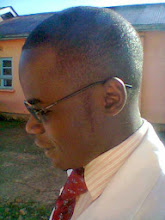 From time to time students demonstrations have been viewed as the sources for moulding and practicing terrorism on the public. It has evolved to be apparent that there's no way that under the blue sky the authorities can give a go a head for a student peaceful demonstration when they are allowed to do so. This comes from the notion that this is usually a mission to burn public property, terrorize innocent Kenyans and kill the animals that come in the sight.
From time to time students demonstrations have been viewed as the sources for moulding and practicing terrorism on the public. It has evolved to be apparent that there's no way that under the blue sky the authorities can give a go a head for a student peaceful demonstration when they are allowed to do so. This comes from the notion that this is usually a mission to burn public property, terrorize innocent Kenyans and kill the animals that come in the sight.As if this being not enough, a good part of the society have been made to believe that the first training one gets after joining any university is how to riot, mob, and destroy. Where?
I have been lucky to attend matriculation of several universities here in Kenya and if there is anything highly condemned by both student leaders and administration is Rioting. a lot of emphasis is usually put on its demerits and what one can expect if he or she engages in such. But does the public recognize that?
WHO BURNS PUBLIC PROPERTY IN STUDENTS DEMONSTRATIONS?
As time goes, this notion has circulated so far among the Kenyan youths and its undebatable that most non students in the neighboring of academic institutions participate in the riots than students do. Speaking to NTV, Zaack Kinuthia the former SONU chairman was seen as a joker when he said this.
Those who have ever participated or if not participated, keenly observed the procession of some of these demonstrations can attest to this. Learning from the past, it can be remembered that in 2012 when one of the students was brutally murdered at the famous KM in the neighborhood of Kenyatta University, students were granted a permission to demonstrate peacefully within the university premises. This was well done by those who were leading all the way from KM to the gate singing and chanting mourning songs. But after they left the gate silently and satisfied they had mourned their colleague, unknown group of people lit fire along Thika superhighway tinting the name of this world class university.
Similar events have been observed in different institutions just to name few, Masinde muliro of Science and Technology, Kisii University among others.
The public has always come out to engage the students on peaceful riots either in capacity of police or fellow students. This character has circulated and can be observed that same is happening on online platforms where students engage in discussions of matters pertaining their stay in campuses. It's sad when you read a profile of someone without any student status engaging loudly intellectual minds on online platforms and criticizing what he or she understands least.
It's apparent that the society is continuing to create animosity between it and these young intellects who are yet to come out drive this economy. It will be more honorable and ample if the public shall refrain from engaging in what they understand least about students or consult first before engaging them. It's sad to see epitomes of knowledge, benchmarks of intellectualism and icons of prosperity branded all kind of names and titles they deserve least.
Let us give University students their rightful place in society.


